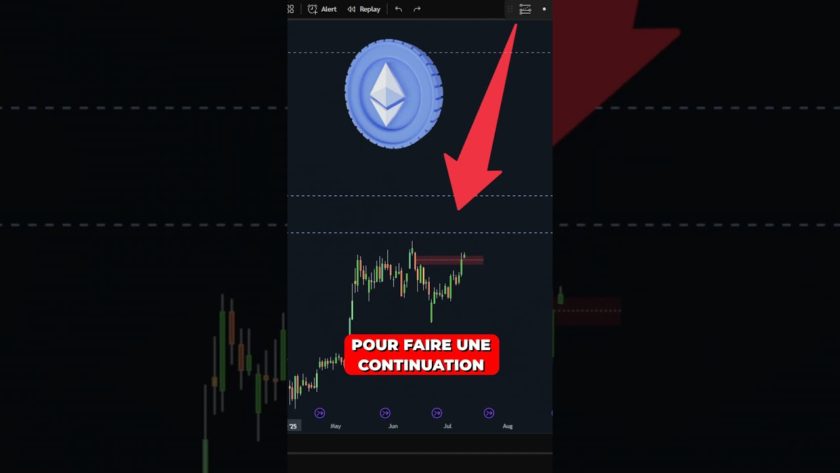As interest in blockchain continues to gain traction, the importance of investor education is at an all-time high. With hundreds of new projects popping up every week, it may be hard to separate the wheat from the chaff. Not every project can be or will be successful. To further complicate matters, some come with a cryptocurrency token used to raise funds.
How do you protect yourself prior to investing? Educate, educate, educate. I always advocate for researching the project’s team, the industry they are trying to disrupt, and reading the whitepaper carefully. Learn the team, ideas are great, but execution wins the day. But just because something looks good on paper, it doesn’t mean it will live up to the hype.
Remember that anytime someone makes money on a trade, someone else will be losing it. At the end of the day, no one has a crystal ball to predict successful projects. But, there are a few fundamental questions you need to ask (and find the answer to) prior to investing your hard-earned money. Let’s look at how you can identify value like the professionals:
Does the blockchain have an earnable token?
Miners or validators are the lifeblood of nearly every blockchain. They write the transactions and thus control the nodes. In return for this work, they need to be incentivized and rewarded. Think of miners as accountants – and accountants don’t work for free.
If the project you’re researching does not have an earnable token, ask yourself why miners would want to invest their time (or who will? An industry consortium?) and computing power to keep the blockchain nodes running smoothly. If the only way someone can possess the token is through exchanges and airdrops, ask, who is doing the work? Without validators, widespread adoption and use of the technology will likely fail – and that’s where the real value is.
How will data get into the blockchain?
If the project is trying to disrupt an industry with proven legacy systems, how will businesses migrate their data onto the blockchain? Different blockchains will have different block sizes, so you need to think of how much data will fit into each block, what data will be pertinent to store in the blockchain, and how businesses will transfer the data into the blockchain. Is storage of all the data required or just a pointer to an off-chain data store?
It may sound boring, but just think of the massive amounts of data migration that happened during the Y2K scare. A few savvy people made a lot of money doing it, and this time won’t be different.
Does this require a consortium to agree to its use?
This is unavoidable, but something you always need to consider prior to investing. If a project aims to disrupt an industry, you need to think of all the companies within the given industry that would also need to adopt the technology and standards.
For example, a few projects aim to disrupt the supply chain industry. But within the supply chain, there are many companies that would need to fully adopt the technology for the blockchain to have an impact – suppliers, manufacturers, shippers, retailers…the list goes on and on.
Disrupting established industries takes time. It’s just a matter of how long, and how many players need to give their buy-in before the blockchain’s vision comes to fruition.
How will the data be analyzed and used?
Now that we have all this great data on the blockchain, what’s next? Think of how the data will be used and what benefits it will provide businesses. Simply storing data on a blockchain and calling it a day is not going to drive value for businesses or adoption. So, consider the specific benefits a company or industry will gain by storing their data on a blockchain.
One interesting use case is seeing who is accessing the data and how.
Let’s take airports to illustrate this. Say every national airport in the US adopted a specific blockchain to store flyers’ data. You could then analyze the total number of visitors to each airport, but also what travelers are doing at each airport, time spent at each location, and much more. This level of transparency is completely unique to blockchain technology – it simply wasn’t possible before.
Does the blockchain perform at the speed of business?
At its core, blockchain is the “Internet of Transactions.” Transactions per second, or TPS, is crucial to long-term use and adoption of blockchain technology – both by enterprises and by consumers.
One size does not fit all. Some blockchains are better for financial transactions than processing transactions.
If a network validates data too slowly, businesses will not be able to use it, regardless of other benefits it provides. For example, the recent Crypto Kitties craze. Ethereum was a victim of its own success – with so many people playing Crypto Kitties, the network was bogged down. Transaction times and cost drastically increased simply because lots of people were using a network, that by design, is single threaded. Think of it as a one-lane highway
Now think of major international corporations and how many people would need to be using a blockchain simultaneously. If the network won’t be able to handle high traffic and usage volumes, it is not going to be adopted by major companies who need instant access to their data.
Once you’re able to confidently understand and answer these questions prior to investing you’ll not only be able to identify high-value projects, you’ll also have a better understanding of the blockchain ecosystem. The true value of blockchain won’t come from flashy spokespeople, a well-thought-out development roadmap, or a never-ending slew of announcements. It will all come down to execution and adoption.
About the author: Lawrence Lerner is the CEO of Pithia, Inc., a venture capital company for The RChain Cooperative. Pithia is developing the blockchain 3.0 ecosystem and driving enterprise adoption through strategic investments in identity, storage, supply chain, payment, and governance solutions.
Follow us on Telegram or subscribe to our newsletter here.
• Join CCN’s crypto community for $9.99 per month, click here.
• Want exclusive analysis and crypto insights from Hacked.com? Click here.
• Open Positions at CCN: Full Time and Part Time Journalists Wanted.




